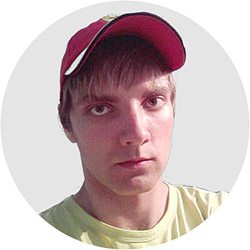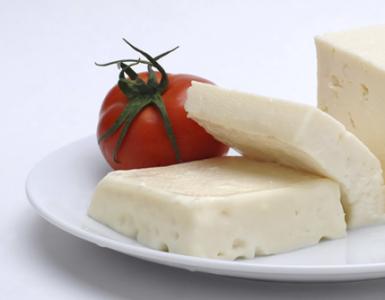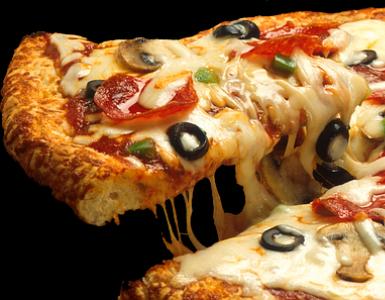Eat after gym workout. What is a protein window? And what can you eat after a workout in the gym
You gathered strength and decided to start a sporty lifestyle? This is a commendable initiative, and the main thing now is to observe the regularity of the chosen training sessions. If this classes in the gymthen a set of exercises to achieve certain goals will help you choose a personal trainer. If these are group lessons, then your task is to carry out movements conscientiously and not to tinker. However, in addition to the sporting process itself, nutrition before and after training is of great importance. After all, you go to the hall to "build" a beautiful body, right?
First, we eat, then we run ... or we carry the barbell!
Food is the building material of our body. She can become our friend and ally on the way to the ideal figure, or she can be an enemy on the way. Let's see how nutrition before exercise affects the results we show in class.
The first thing that food should provide is enough energy for physical activity. You do not want to die of fatigue and lack of strength during training?
They give us energy and proteins help to prolong the feeling of satiety for a long time. In order not to feel hunger, but also not to jump-run with a full stomach, you need to eat 1.5-2 hours before class. It can be porridge on water with vegetables, scrambled eggs with whole grain bread, pasta, and fruit - foods that are rich in carbohydrates and proteins, with minimal fat content.
When planning meals before a workout, consider the nature of the classes. If you are going to the gym for half an hour before they can additionally drink a protein shake or eat some cottage cheese. This is necessary so that the amino acids in the body are immediately used for protein synthesis and muscle growth. Immediately before aerobic exercise, it is better not to eat anything, just drink some water. By the way, you need to replenish the liquid reserves during the training process.

To eat or not to eat is the question!
You successfully and productively rehearsed in the hall, and when you came home, you felt a slight feeling of hunger. What to do? Do I have to eat right after training, or should I wait? Again, it all depends on your goals.
Want to build muscle mass - eat within the first 20-30 minutes after exercise. The fact is that during this period catabolic processes begin (active destruction of muscles), which contradicts your desires. To work in the gym were not in vain, it is necessary to eat digestible protein (egg, for example) and C is all clear, but why carbohydrates? They contribute to the development of anabolic hormone insulin, which prevents the development of destructive processes in the muscles. It is also useful to drink milk after exercise, because it contains casein and whey, contributing to the rapid recovery of muscles.
If, however, to increase the mass is not in your plans, but the cherished dream is a thin taut figure, then it is better to give up eating during the first hour after a workout, and then eat something light and lean. It must be protein. A great option - lean fish or white chicken meat and vegetable garnish.

As you can see, nutrition before exercise and after it differs depending on the type of physical activity, as well as the goals that we pursue when going to the gym.
Summing up, we can formulate such a rule: food before training should be anyway, preferably a couple of hours before class. After strength exercises there is a need for half an hour (fast-digesting proteins + carbohydrates), and after aerobic - no earlier than an hour (low-fat proteins + complex carbohydrates). Eat right and achieve your goals!
№5. No bucking!
Some visitors of the halls like to relax after training for a glass under a pike's head. In general, alcohol can occur 1-2 times for 14 days in quantity 1-2 glasses of wine or beer. However, after a workout and the next day, drinking is absolutely not worth it. Studies say alcohol speeds up the loss muscle mass on 40% It also interferes with the “charging” of the glycogen depot. Thus, we have that you have practiced, made a step towards improving your physique, then thumped and fell back on 2 step back.
Next in line is this.
What to eat after training? Truth and Myths
There are many myths in nutrition after training, here are the main ones:
№1. You must eat carbohydrates and proteins together in the anabolic window
Most of the research conducted in the field of nutrition of athletes suggests that the body, indeed, with an improved degree of absorption of nutrients after exercise, but not always carbohydrates + proteins are the best solution. If an athlete sets as his goal weight loss, then he should not worry about the carbohydrate component, but should focus on proteins. Thus, it all depends on the goals and body type.
№2. Absolutely any protein is fit for use after exercise.
This is not true. Not all proteins can be used in post-training, i.e. You can use them, but this is not their most optimal form. These include - cottage cheese, casein protein, yogurt. These proteins are slowly digested and absorbed into the bloodstream, after training we need speed and here, as they say, every second counts. Therefore, the best (not budget) option are amino acids with a branched side chain BCAA - these are ready-made end chains for assimilation, it only remains, as in advertising, to simply add water.
More budget options are concentrate, isolate and whey protein hydrolyzate, the latter being more preferable, in mind, supposedly, ultrafast (and actually order order 60-80 minutes) absorption and return of the biological value for the minimum time. If you are not a fan sports nutrition, then pay attention to lean protein in relatively fast digestion, in particular: chicken / turkey fillet, chicken / quail eggs, white fish (pike perch, carp, sole).
Number 3. Consumption of fat after exercise is not acceptable
This is true! Fat and dietary fiber slow down digestion. Therefore, it is necessary to abandon fat (does not apply to ectomorphs) and fiber, in particular, nut paste and nuts are not the best snack after a workout, it is better to transfer them to the reception before training.
№4. Sports supplements with glutamine and L-glutamine are required
Not mandatory, but desirable condition. The glutamine level after a workout drops; the immune system needs sources of glutamine, and third-party, preferably from the outside, to start the recovery process. The launch of a building strongly depends on glutamine, which is present in the muscles, and when it is not received as an additive, the body takes it from the muscles, i.e. robs them. Thus, supplements with glutamine will preserve its natural reserves. (maintaining muscle protein balance), stimulate the synthesis of new protein and launch recovery processes.
№5. Anabolic window lasts only 1-3 hours
On the Internet, walking information that the anabolic window lasts no more 3 hours, however this is not true. Research by Professor Tipton (USA) has shown that the time frame of the window is 24 hours, i.e. if you practiced on monday 8 in the evening, until Tuesday evening, this window is open, and protein synthesis is about the same level as immediately after class.
Moreover, some studies say that even after 48 hours, the levels of protein synthesis are increased (at 35% a) level, which means an increase in the period during which we can maximize the growth of our muscles using protein mixtures and products. Thus, we can assume that the “anabolic window” is much more 1-3 hours
№6. Protein intake immediately after exercise causes the greatest protein synthesis.
It turns out that this is not the case, and studies say that taking a cocktail immediately after a workout reduces protein synthesis by 30% in comparison with the option when the athlete is waiting for a certain time ( 15-30 minutes)
№7. Insulin sensitivity only increases within 1 hour after exercise.
According to Professor Koopman (USA) , power training increase the body's sensitivity to insulin, and this effect lasts more 24 hours Those. the highest sensitivity occurs immediately after exercise, and a slightly reduced effect lasts for the next 24 hours
№8. Aspirin and ibuprofen are good anti-inflammatory for muscle recovery.
Muscle soreness after exercise is not liked by many, and, in this case, it can be removed by painkillers. However, studies by Professor Trappe (USA) say that the use of such drugs inhibits the body’s production of natural chemicalnecessary for muscle growth and recovery. Thus, taking painkillers such as aspirin and ibuprofen inhibits protein synthesis, inhibits muscle growth and increases recovery time.
So, more or less figured out where the truth is, and where is the lie, now let's talk about or stand ...
Hey people. Did you fall asleep there? Personally, I already stick my nose :) and I propose to continue next time. The article has already turned out to be mega-volume, and I haven’t even told half yet, therefore ...
Afterword
Today we figured out what we have after training, we didn’t figure it out until the end, but we will definitely do it with new forces in the upcoming note soon, so far we don’t disagree, soon we will be again nudged :).
See you soon, while digest this brew, bye!
Ps. What do you eat after training?
Pps. Attention! 15.11 the possibility of sending questionnaires for food will be available I will be glad to work together!
With respect and gratitude, Protasov Dmitry.
Intensive training depletes the supply of glycogen in the blood, which is accompanied by the release of stress hormones, resulting in injury to muscle fibers. These changes are for the body a powerful impetus that triggers the recovery process, muscle growth.
In the first 30-35 minutes after training in the gym, a high concentration of stress hormones is maintained in the body. Insulin can stop their action. Carbohydrate intake increases glucose levels, triggers the action of recovery processes. This gap corresponds to the so-called protein window.
The arguments against and for eating.
On account of what you can eat after a workout in the gym, there are different points of view. According to some nutritionists, if you do not take carbohydrates right after the load, but restrict yourself with amino acids, protein mixtures, then part of the diet will be split to compensate for energy costs and glucose levels.
The theory has opponents. In their opinion, it is much more important to build a proper diet, and for muscle growth it does not matter how quickly the body gets nourished. If an athlete eats a protein mixture or a regular lunch, returning home from the gym, it will not affect the results. Most nutritionists consider it right to use the opportunity to eat in the interval corresponding to the window.
What can close the "window"?
It is more correct to eat liquid food in the gym after classes, while the speed of protein digestion increases further. You can restore glucose with a glass of grape or cranberry juice.  It is useful to eat a small portion of boiled vegetables, rice, durum pasta. In practice, this is not very convenient to do, it is easier to bring a marmalade, an apple, a couple of bananas with you, and eat them after finishing the classes. During a protein window, an athlete can afford to eat:
It is useful to eat a small portion of boiled vegetables, rice, durum pasta. In practice, this is not very convenient to do, it is easier to bring a marmalade, an apple, a couple of bananas with you, and eat them after finishing the classes. During a protein window, an athlete can afford to eat:
- a little marshmallow;
- biscuit;
- condensed milk;
- dates;
- raisins.
This will not be a violation of the diet, because carbohydrates are spent on recovery processes. It is important not to eat fats after training in the gym. They slow down the metabolism, reduce the rate of protein absorption. Do not get carried away and nuts. They are high in calories, contain a high percentage of fat.
Protein-carbohydrate mixture.
The best of the options that you can eat after a workout in the gym - protein-carbohydrate cocktail, gainer. This drink is a protein-carbohydrate mixture, enriched with vitamins, microelements, amino acids. Since the processes of muscle growth and destruction of the fat layer run in parallel, gainers are ideal for any type of training. Instead of a gainer, you can drink a cocktail with “fast” protein, choose protein mixtures containing amino acids. Supporters of natural food can be recommended at the end of the workout: 
- milk with honey;
- whipped protein;
- fresh fruit with nuts;
- cocoa with condensed milk;
- yogurt with berries.
Reception during the window of such mixtures leads to the normalization of the rate of metabolic processes and glucose levels.
Night protein window.
On the day of training in the gym there is a second protein window. It appears at night, this phenomenon is caused by a high need for protein. These compounds are contained in cottage cheese, milk. Nightly meals are especially necessary for bodybuilders. This need means a high level of recovery processes in the muscles. Take only natural protein or protein mixtures. At the same time there is no accumulation of subcutaneous fat deposits, all incoming amino acids are spent on the synthesis of muscle protein.
Correct nutrition after exercise just as important as the correct one we wrote about is important. Therefore, do not neglect the information that is worth eating after training, and most importantly, when and how. This article describes in detail the main points that you should take into account in your diet, if you want to achieve good results from training in the gym.
When to eat after exercise
You have exactly 30 minutes after training to take advantage of the tremendous abilities of your body, if you do not use these opportunities, you can minimize the positive results from training. In the first 20-30 minutes after a workout, a so-called “protein window” is formed in the human body, in which the athlete just needs to absorb a huge amount of proteins and carbohydrates so that the muscles have what to use for growth, and most importantly, the body can cope with the processing large volume of substances. These first 30 minutes are very important, but for most athletes it is almost unreal to eat well immediately after the class, as there is still a way home, in this case protein shakes and gainers (which are also rich in carbohydrates) will help out, which you can certainly buy in your gym. , or you can take a ready cocktail with you from home.
What you need to eat after exercise
As they say, you won't be full of protein shakes, this also applies to muscles, they need to be fed with carbohydrates. Moreover, the time after exercise is ideal for fast carbohydrates, when before training it is better to get long carbohydrates. The protein window, otherwise called anabolic, for the reason that the body needs "food", to recuperate, as well as to activate muscle growth.
Where to get carbohydrates?
Carbohydrates are unlikely to be consumed as quickly as protein and cocktail, but there are special bars for athletes that are rich in fast carbohydrates. From ordinary products it is worth to highlight such as
- Buckwheat
- Barley porridge
- Oatmeal
- Millet porridge
- White rice
- Bran (convenient to take with you to the gym)
- Bananas (convenient to take with you to the gym)
Food after exercise at home
If the gym is equipped at your home, or you live from it in minute availability, then you are in a much more comfortable position than the athletes who have no opportunity to eat at home. The following mixture can be considered an almost universal meal after each workout:
- 200 grams of cottage cheese, 2 tablespoons of sugar, 3 sliced bananas, 100 milliliters of milk
All this must be mixed in a comfortable bowl, and use, of course, for all the same 30 minutes after training. Dairy products will give your body the necessary 30-50 grams of protein, and sugar and bananas will give the body the necessary carbohydrates. This mixture has a lot to taste, because it is not only healthy, but also really tasty. If for some reason you can not eat cottage cheese, or another component from the above proposed dish, you can eat products separately to saturate the body. We have described carbohydrate-rich foods above, but the necessary proteins are found in foods such as:
- Poultry meat
Of course, none of this should be fat. Eating fatty foods at any moment of the day is not the most useful exercise, but eating fatty after a workout, it means throwing your body's strength to the splitting of complex elements, and not to rehabilitation after exercise and not to muscle growth.
Drinking after training
In fact, you need to drink and during intensive training, as the athlete's body has a constant need for fluid. So there are no subtleties and tricks with drinking after a workout, but it is worth considering that in the first two hours after the end of the workout, you should not drink any drink that contains caffeine. These drinks include not only the coffee itself, but tea, cocoa, chocolate drinks. Caffeine is not so much harmful after exercise as it simply interferes with glycogen loading into the liver and, consequently, into the muscles.
Nutrition after exercise for weight loss
Some athletes are aiming not to build up weight, but to lose overweight. In this case, after a workout, it is worth eating differently than when gaining weight. The tactic is very simple, you do not need to eat for 2-3 hours after the end of the workout, then your body will try to use your energy reserves, including from fat molecules, which will visually affect your form - you will lose weight, and the arrow will begin to show smaller results. After 2-3 hours of “hunger strike”, it’s still worth eating, you do not need to saturate your body with extreme concentrations of proteins and carbohydrates, just eat well.













